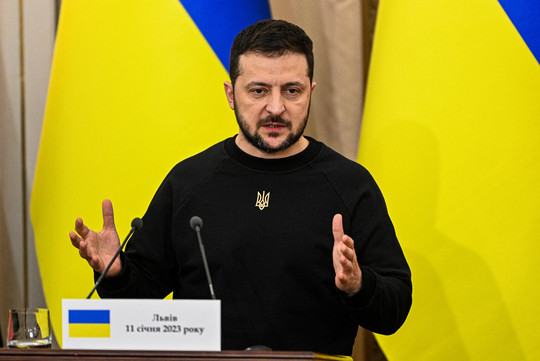Media freedom and pluralism are at stake in Ukraine under the law ‘On Media’, submitted to the Parliament in 2020 and approved on 13 December 2022, which increases government control of information. The law empowers the regulator, the National Television and Radio Broadcasting Council, whose members are appointed by the President and the Parliament, with a broader authority over the Ukrainian media landscape.
According to the recently passed legislation, signed in to law by Zelensky on 29 December, the National Television and Radio Broadcasting Council will be able to temporarily ban the work of online mass media and demand internet providers block access to online publications without a court hearing, issue binding orders to the editorial offices of media, regulate the work of cable and online television operators, and cancel the registration of print media, among others.
In July 2022 when Ukraine was granted the status of an EU candidate country, the IFJ affiliates, NUJU and IMTUU, together with the European Federation of Journalists (EFJ), called on the Ukrainian authorities to bring the draft media legislation in line with European standards of press freedom.
A statement published by NUJU on 13 December warned that freedom of speech was under threat in Ukraine and branded as “excessive” the broader power given to the national regulator. The union said that “the law does not envisage the regulation of the media sphere, but in fact, the establishment of relations of subordination, when the media become under the control of the authorities.”
In a statement issued in early January, IMTUU warned that the law does not contain restrictions on the creation of linear media services by the state, allowing the monopolisation of airwaves with content created exclusively by state-owned media. “This actual state of affairs does not contribute to limiting the political influence of the pro-government political force on the media and contradicts the principle of pluralism, which will create systemic problems with democracy.”
In addition, the union noted that, according to the law, the cancellation of licences and the banning of media activities can take place without a decision of the regulator and the court, which “nullifies the role of the regulator and puts media owners in full political and economic dependence on the personal decisions of the country's president, which will create problems for democracy,” it added.
IFJ General Secretary Anthony Bellanger warned that the law will have a chilling effect on freedom of expression. “We are extremely concerned about the authoritarian drift of the Ukrainian government towards the media and journalists. While the new legislation is intended to implement the European Directive, it could create systemic problems for democracy in Ukraine as it expands state control over the media,”Bellanger stated.
“We are calling on the government to rewrite the law, and open a discussion with journalists’ organisations and the media. There cannot be a democracy without independent journalism,” he added.

